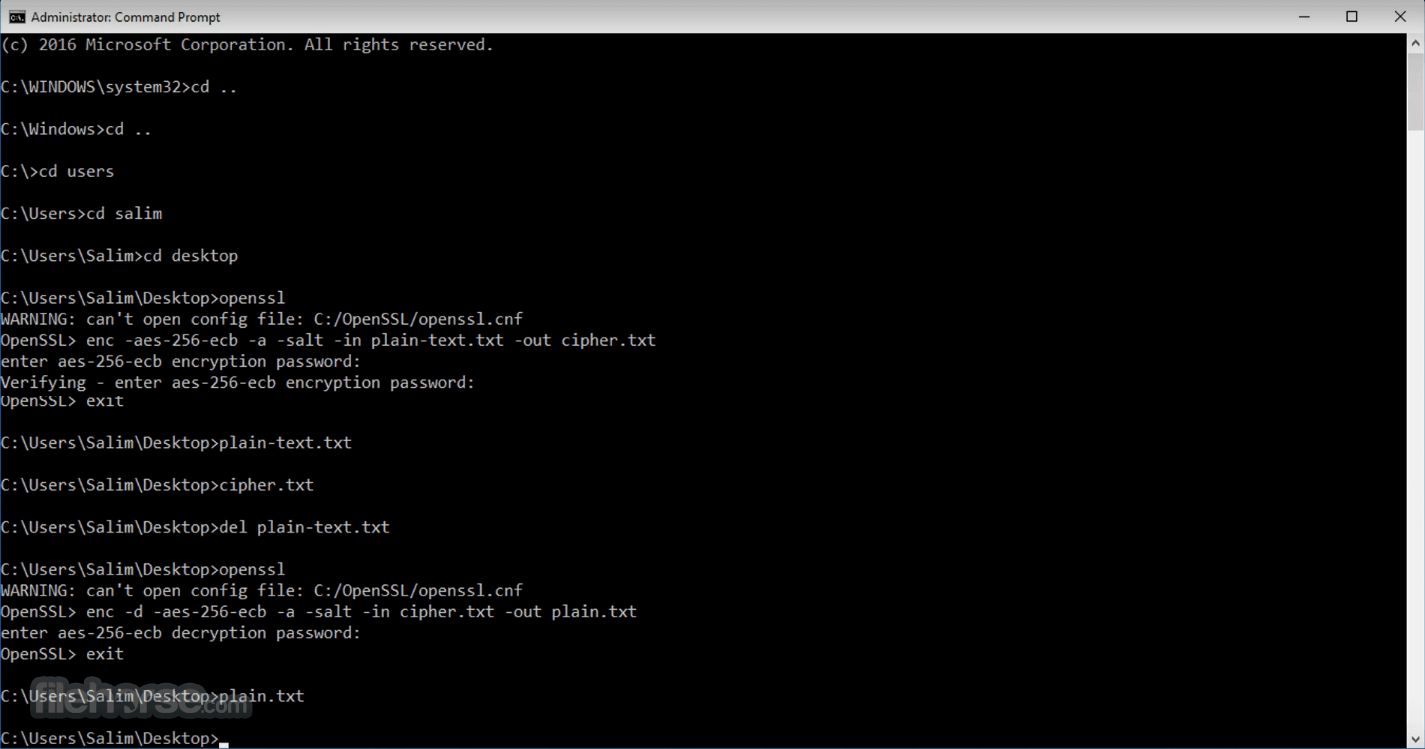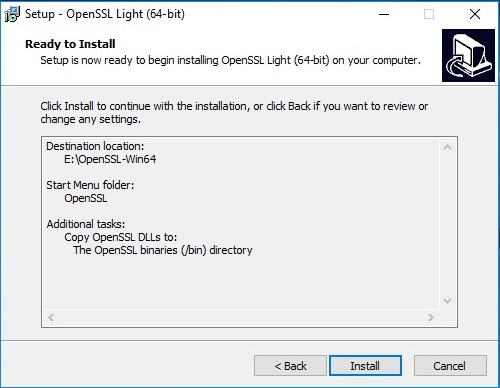
Options: bn(64,64) md2(int) rc4(ptr,char) des(idx,cisc,16,int) blowfish(idx)Ĭompiler: -arch x86_64 -fmessage-length=0 -pipe -Wno-trigraphs -fpascal-strings -fasm-blocks -O3 -D_REENTRANT -DDSO_DLFCN -DHAVE_DLFCN_H -DL_ENDIAN -DMD32_REG_T=int -DOPENSSL_NO_IDEA -DOPENSSL_PIC -DOPENSSL_THREADS -DZLIB -mmacosx-version-min=10.6
OPENSSL FOR MAC SOFTWARE
Own software and it requires this formula, you'll need to add to yourĬPPFLAGS: -I/usr/local/opt/openssl/includeĪnd when I do openssl version -a it always gives me: OpenSSL 0.9.8zg 14 July 2015 Generally there are no consequences of this for you. This formula is keg-only, which means it was not symlinked into /usr/local.Īpple has deprecated use of OpenSSL in favor of its own TLS and crypto libraries


OPENSSL FOR MAC INSTALL
Great, that seems to work! You will see the usual “Generating a RSA private key” and you will be asked to fill the certificate details.I have used brew install openssl to download and install openssl v1.0.2f, however, it comes back saying: A CA file has been bootstrapped using certificates from the system Let’s give it a shot one more time… /usr/local/opt/openssl/bin/openssl req -x509 -nodes -days 825 -newkey rsa:4096 \ -addext "subjectAltName = IP:192.168.0.123,DNS:pi.local,DNS:pi.home" \ -addext "extendedKeyUsage = serverAuth" \ -keyout key.pem -out crt.pem

Make sure you have Homebrew installed and execute brew install openssl Run again with Homebrew version of OpenSSL We can easily get the “proper” OpenSSL using Homebrew. Installing “proper” OpenSSL using Homebrew $ which opensslĪnd the option we need, -addext, is available only from LibreSSL 3.1.0 (see Release notes). On macOS (Catalina 10.15.3 at the time of writing this post) the OpenSSL is actually LibreSSL. Wait, what? The problem is OpenSSL used by macOS. The command will actually fail with error like this: unknown option -addext Let’s give it a try openssl req -x509 -nodes -days 825 -newkey rsa:4096 \ -addext "subjectAltName = IP:192.168.0.123,DNS:pi.local,DNS:pi.home" \ -addext "extendedKeyUsage = serverAuth" \ -keyout key.pem -out crt.pem Raspberry Pi available on LAN with IP address 192.168.0.123 and domain names pi.local and pi.home.The whole line 2 of the command would look like this: There can be multiple IP address and domain names provided. Where LIST_OF_DOMAINS_OR_IPS must be replaced with comma-separated list of domains and/or IP addresses for which the certificate will be issued. Using OpenSSL it is actually quite easy to generate such certificate openssl req -x509 -nodes -days 825 -newkey rsa:4096 \ -addext "subjectAltName = LIST_OF_DOMAINS_OR_IPS" \ -addext "extendedKeyUsage = serverAuth" \ -keyout key.pem -out crt.pem Prepare OpenSSL command to create certificate Newer versions will likely have newer LibreSSL and make part of the post obsolete. This post is writen based on macOS Catalina (10.15.3). Certificate cannot be issued for longer then 825 days.

Certificate must explicitly list all domain names and/or IP addresses it is issued for.TLS server certificates must have a validity period of 825 days or fewer (as expressed in the NotBefore and NotAfter fields of the certificate).DNS names in the CommonName of a certificate are no longer trusted. TLS server certificates must present the DNS name of the server in the Subject Alternative Name extension of the certificate.We have to, however, make sure to satisfy especially the following ones: Most of the requirements are clear and your certificates probably already satisfy them. The new requirements are documented at Requirements for trusted certificates in iOS 13 and macOS 10.15. IOS 13 / macOS 10.15 introduced new requirements for self-signed certificates, which might cause your old self-signed certificates (or new ones without proper configuration) to just stop working after updating devices.


 0 kommentar(er)
0 kommentar(er)
